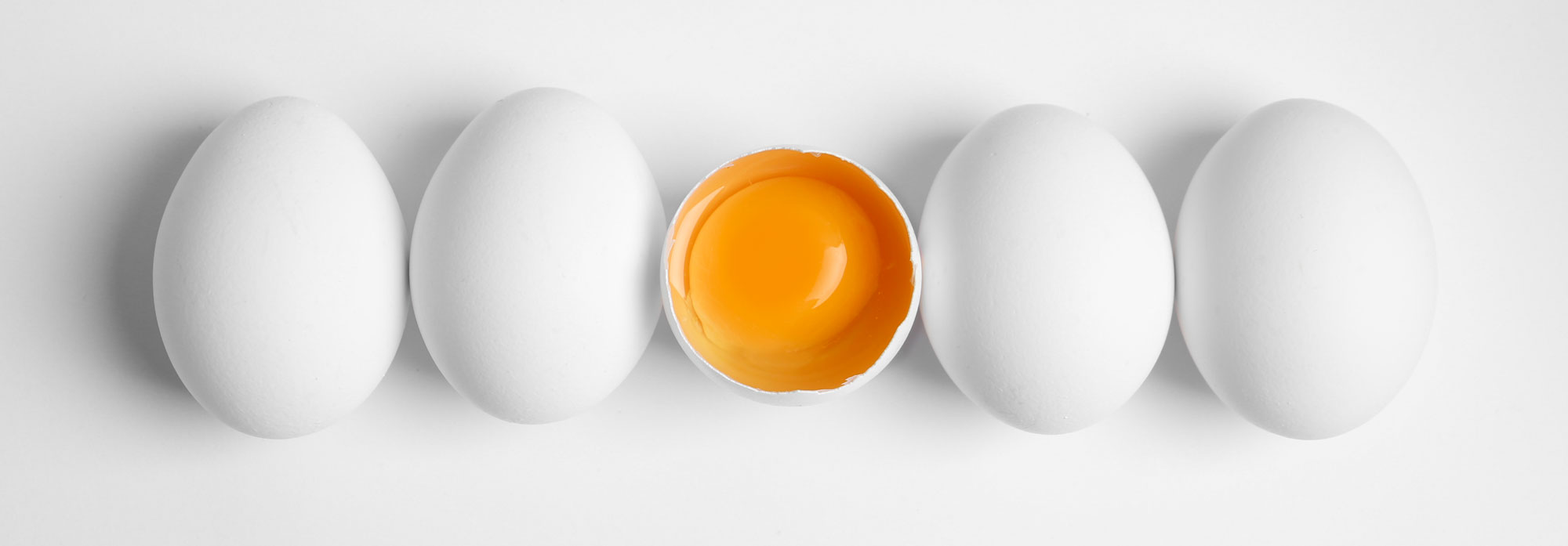FAQ
10/02/2021 2021-02-21 10:01FAQ
Providing safe, quality, and nutritious fresh eggs for our consumers is our top priority at GPC
We follow stringent quality control and food safety measures to ensure our consumers get nothing but the best. Read our most frequently questions to learn more about buying GPC fresh eggs.
All about GPC Fresh Bahraini Eggs
Where are GPC’s hens raised?
Our hens are raised in a farm located in Hamala, within a safe and secure environment with access to high quality vegetarian feed, fresh water, ventilation and lighting.
How do I know GPC’s eggs are fresh?
GPCs Fresh Bahraini Eggs are produced daily and are delivered to stores across the country within 24 hours. Our eggs are stamped with production and expiry dates for freshness assurance.
You can also check the freshness of the eggs by conducting the ‘float’ test. Place the eggs in a container of 10% Sodium Chloride solution. An egg that sinks indicates it is fresh while ones that float are stale eggs and should be disposed.
What is special about the feed consumed by the flock of hens at GPC?
GPC’s flocks of hen are fed a strictly controlled, high-quality and nutritious 100% vegetarian diet without any animal by-products, recycled or processed food. Our wholesome feed contains soybean meal, wheat and maize which provide our hens with a good source of essential proteins and amino acids and consequently help lay nutritious eggs.
Are GPC’s Fresh Bahraini Eggs fresher than other eggs available in the market?
Yes! The eggs GPC produces are fresher than other imported egg brands. It takes a hen 24 – 26 hours to produce an egg. This ensures a daily and continual supply of fresh eggs that our organized and hard-working team executes tirelessly to reach your favorite store in less than 24 hours from the date of production. So, you get your favorite brand of GPC eggs fresh from our farm to your table.
Are the eggs fertilized?
No! Hens lay eggs naturally and GPC eggs that go to market are not fertilized. Roosters are needed to produce fertile eggs. No roosters are kept in our farms, so our eggs are never fertilized.
Are the hens given hormones to stimulate production of eggs?
No, our flock of hens are not given hormones to stimulate production of eggs.
Is the eggs stamped with ink is safe for human consumption?
Why do I find different sized eggs?
The egg size dependents upon the age of the hen. Generally, young hens tend to produce smaller eggs, including double yolk eggs while older hens lay larger eggs. Which is why you may find GPC eggs ranging in size from small, medium, large, jumbo and extra-large in your neighborhood store..
Did you know that the largest chicken egg was laid in 1956 and weighed 454g (the average weight of a chicken egg is 62g), according to Guinness World Records.
What is the average shelf life of GPCs eggs?
Proper food storage is the key for extending the shelf life of foods. Eggs are perishable and must be stored at temperatures between 4* – 10* C to maximize their shelf life. When eggs are properly handled and stored, they do not spoil and are safe to eat even up to 90 days from production date.
What biosecurity and food safety measures have you instituted in the wake of COVID?
Though there are no indications that coronavirus can be transferred through the food supply,
GPC have instituted stringent sanitation protocols and biosecurity measures throughout our operations and have restricted access to external parties to essential services.
GPC provides an essential service to our customers in Bahrain. We assure our customers, consumers, communities, and employees that we will continue our work to produce and deliver a safe food product. Our top priority is the health and safety of our employees, who work hard daily to produce eggs for our consumers.
We continue to closely monitor the situations in the community where we live and work and follow all national health guidelines in implementing procedures to protect our employees.
Where can I buy GPC’s Fresh Bahraini Eggs?
GPCs fresh Bahraini eggs are available in all leading retail channels across the Kingdom of Bahrain.

All about eggs
How often do hens lay eggs?
Hens start to lay eggs at approximately from 5-6 months and they usually lay an egg a day.
Is there a difference between white and brown eggs?
No, there is no nutritional difference between White eggs and Brown eggs. The difference in shell color is due to the breed.
Why are egg yolks in different colors?
For how long can I store eggs?
What are the ideal conditions for storing eggs?
How do I know if an egg is fresh or old?
Are imported eggs as fresh as GPC’s Fresh Bahraini Eggs?
Why do we see blood in eggs sometimes? Are they safe to consume?



